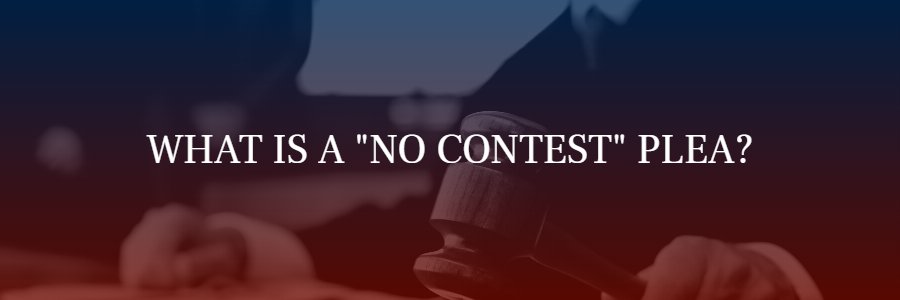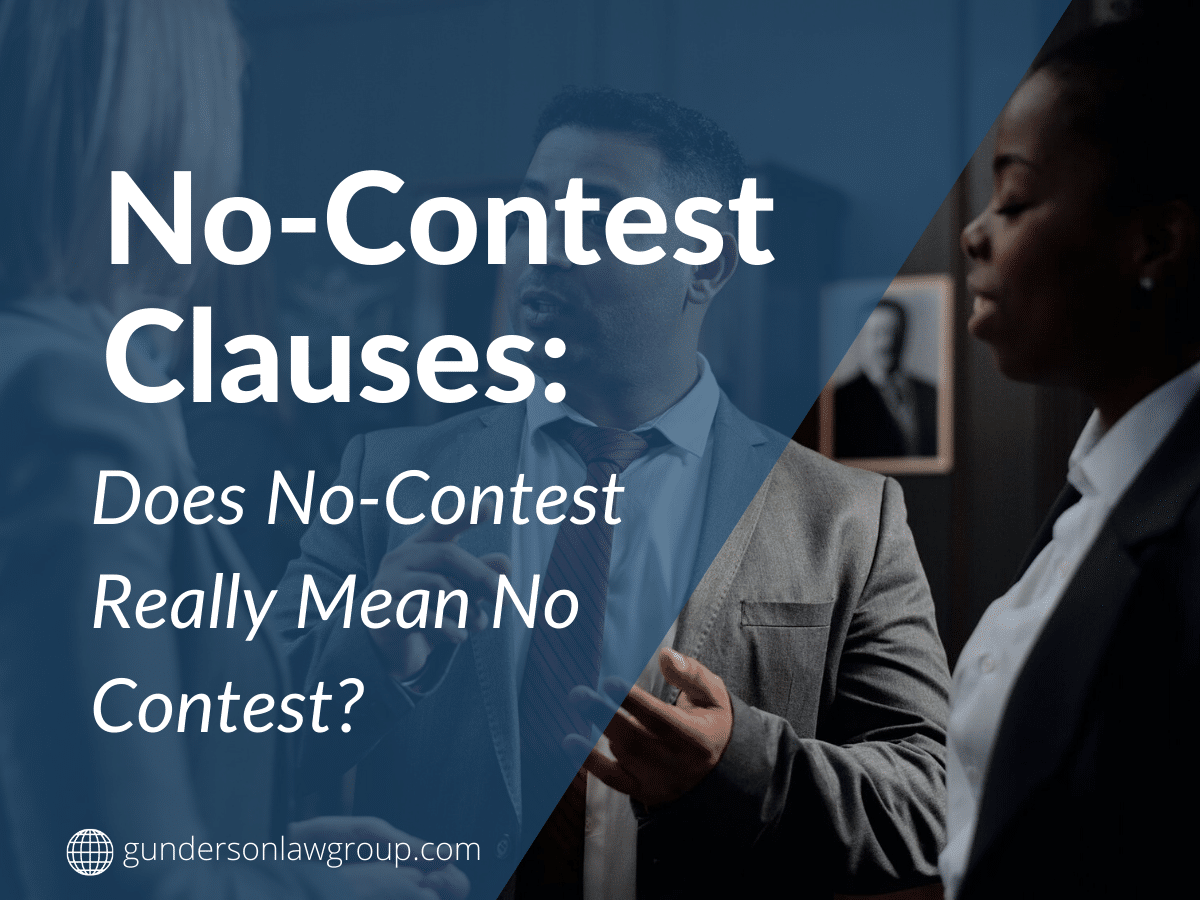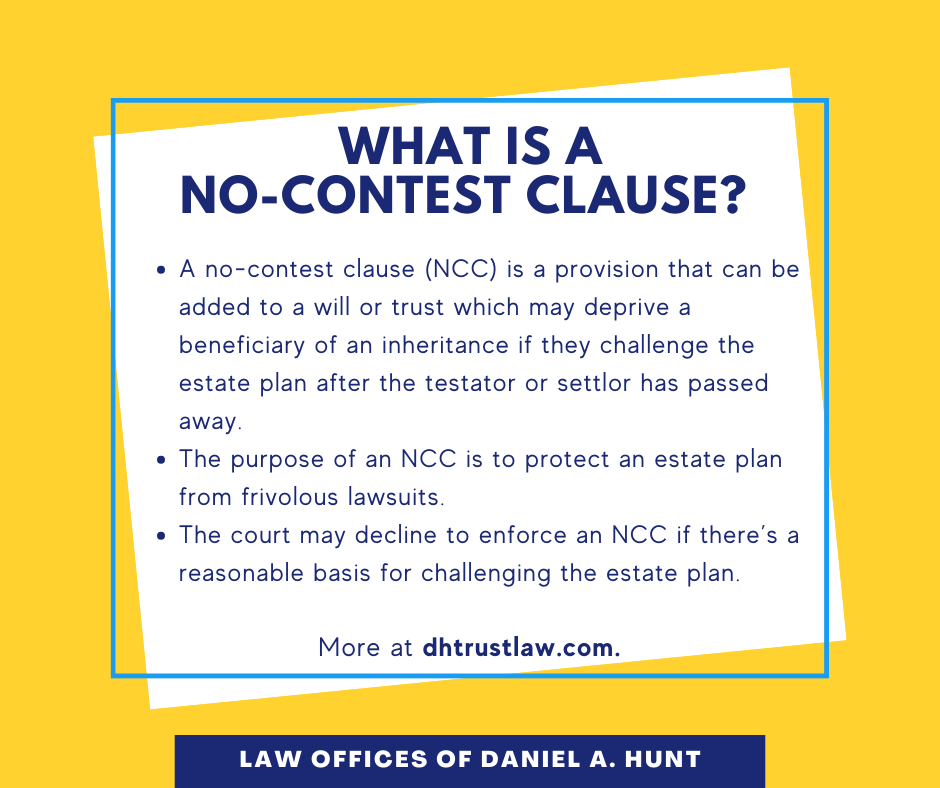Definition of “No Contest” Plea

A “no contest” plea, formally known as a *nolo contendere* plea, is a unique legal option available to defendants in criminal proceedings. It essentially means the defendant does not dispute the charges but also does not admit guilt. This strategic maneuver allows the defendant to accept the consequences of the charges without formally admitting responsibility for the alleged actions.
Comparison of No Contest, Guilty, and Not Guilty Pleas
The key difference between a no contest plea and a guilty plea lies in the admission of guilt. A guilty plea explicitly acknowledges guilt, while a no contest plea avoids such an admission. Conversely, a not guilty plea asserts innocence and challenges the prosecution’s case. The consequences of each plea vary significantly. A guilty plea typically leads to a conviction and sentencing, while a not guilty plea results in a trial. A no contest plea results in a conviction, but with the crucial distinction that the plea itself cannot be used as an admission of guilt in subsequent civil cases.
Implications of a No Contest Plea on a Criminal Record
Entering a no contest plea results in a criminal conviction. This conviction will appear on the defendant’s criminal record, potentially impacting future employment opportunities, licensing applications, and other aspects of life. The severity of the consequences depends on the specific charge and the jurisdiction. While the plea itself doesn’t constitute an admission of guilt in a subsequent civil case, the conviction itself can still be used as evidence.
Strategic Advantages of a No Contest Plea, What does no contest mean in the court of law
A no contest plea might be strategically advantageous in several situations. For instance, a defendant might choose this option to avoid the costs and uncertainties associated with a trial, while simultaneously preventing an admission of guilt from being used against them in a related civil lawsuit. Consider a scenario where a company is accused of environmental violations. The company might plead no contest to avoid the expense and risk of a lengthy trial, and simultaneously protect itself from the potential for much larger financial penalties in a subsequent civil suit brought by affected individuals or government agencies. In other situations, a no contest plea might be a better option for individuals who want to avoid the stigma associated with a formal admission of guilt, even though they may not have strong defenses against the charges. For example, a defendant facing a minor traffic violation might choose a no contest plea to quickly resolve the matter and avoid a trial.
Consequences of a No Contest Plea: What Does No Contest Mean In The Court Of Law

Entering a no contest plea, also known as a *nolo contendere* plea, carries significant consequences, impacting both immediate penalties and future legal ramifications. While it avoids an admission of guilt, it’s treated similarly to a guilty plea in many respects, resulting in penalties that can significantly alter a person’s life.
What does no contest mean in the court of law – The penalties associated with a no contest plea are essentially the same as those for a guilty plea. This includes a range of potential punishments, depending on the severity of the crime and the jurisdiction’s sentencing guidelines. These can encompass substantial fines, imprisonment, and periods of probation, with the potential for community service or other mandated programs as well.
Penalties for a No Contest Plea
The specific penalties will depend heavily on the nature of the charge. A minor traffic violation might result in a fine and a point on one’s driving record. However, a serious felony could lead to years of imprisonment, significant fines, and an extensive period of probation. For example, a no contest plea to a DUI (Driving Under the Influence) charge could result in jail time, license suspension, mandatory alcohol treatment, and hefty fines, while a no contest plea to a more serious felony like assault could result in a lengthy prison sentence.
Impact on Future Legal Proceedings
A no contest plea, while not an admission of guilt in a criminal court, can have significant repercussions in other legal contexts. In civil lawsuits stemming from the same incident, the plea can be used as evidence against the defendant. For example, a no contest plea to a traffic accident resulting in injury could be used in a subsequent civil suit to establish liability. Similarly, it can negatively affect immigration applications, particularly for those seeking permanent residency or citizenship in the United States. A no contest plea to a serious crime could lead to deportation or denial of a visa.
Variability of Consequences Across Jurisdictions
The consequences of a no contest plea can vary significantly depending on the jurisdiction. Sentencing guidelines, judicial discretion, and the specific laws of a state or country all play a role. For instance, a particular crime might carry a mandatory minimum sentence in one state but allow for more lenient sentencing in another. The specific facts of the case and the defendant’s criminal history also factor into the judge’s decision.
Comparison of No Contest and Guilty Pleas
The following table compares the consequences of a no contest plea versus a guilty plea in various legal contexts. It’s crucial to remember that these are general comparisons, and specific outcomes can differ widely based on individual circumstances and jurisdiction.
| Legal Context | No Contest Plea | Guilty Plea | Key Differences |
|---|---|---|---|
| Criminal Sentencing | Same penalties as a guilty plea (fines, jail time, probation) | Same penalties as a no contest plea (fines, jail time, probation) | No difference in sentencing; however, a guilty plea is an admission of guilt, while a no contest plea is not. |
| Civil Lawsuits | Can be used as evidence of liability | Can be used as evidence of liability | Both can be used as evidence; however, a guilty plea might carry more weight in some jurisdictions. |
| Immigration Proceedings | Can negatively impact immigration applications | Can negatively impact immigration applications | Similar negative impact; however, the specific consequences can vary based on the nature of the offense and the immigration laws. |
| Professional Licensing | May lead to suspension or revocation of licenses | May lead to suspension or revocation of licenses | Similar impact; however, the decision is often made on a case-by-case basis depending on the profession and the severity of the offense. |
Legal Representation and No Contest Pleas
A no contest plea, or *nolo contendere*, carries significant legal ramifications, making skilled legal representation crucial. A lawyer’s role extends beyond simply filing the plea; it encompasses a thorough understanding of the client’s situation, potential consequences, and the strategic advantages and disadvantages of this specific plea. This ensures the client makes an informed decision aligned with their best interests.
The decision to plead no contest is a complex one, involving careful consideration of various factors. A lawyer’s guidance is paramount in navigating this intricate process.
The Lawyer’s Role in Advising on No Contest Pleas
Legal counsel plays a vital role in educating the defendant about the implications of a no contest plea. This includes explaining that while it avoids an admission of guilt, it still results in a conviction that can have similar consequences to a guilty plea, such as fines, probation, community service, or even imprisonment. The lawyer must also discuss how a no contest plea might affect future legal proceedings, such as civil lawsuits stemming from the same incident. They must thoroughly assess the evidence against their client and evaluate the potential outcomes of a trial versus a no contest plea. The lawyer’s objective is to ensure the client fully understands the ramifications before making such a critical decision.
Circumstances Where a No Contest Plea Might Be Recommended
A lawyer might recommend a no contest plea under specific circumstances. For instance, if the evidence against the client is strong, a no contest plea might lead to a more lenient sentence than a conviction after a trial. In situations where the defendant wants to avoid admitting guilt for personal or professional reasons (e.g., to avoid reputational damage or potential ramifications for licensing), a no contest plea offers a strategic alternative. Furthermore, in cases where the potential civil liability is a significant concern, a no contest plea might be recommended to limit the use of the criminal conviction in subsequent civil proceedings. The decision is always case-specific and depends on a careful weighing of the potential benefits and drawbacks. For example, a high-profile individual facing relatively weak evidence might choose a no contest plea to minimize negative media attention.
Ethical Considerations in Recommending a No Contest Plea
Recommending a no contest plea involves significant ethical considerations. The lawyer has a duty to act in their client’s best interests, but this must be balanced against their ethical obligations to the legal system. A lawyer cannot recommend a no contest plea if they believe their client is actually guilty and the plea would constitute a perversion of justice. The lawyer must ensure that the client is fully informed and understands the implications of their decision, making it a truly voluntary choice. Transparency and full disclosure of all relevant information are crucial. The lawyer’s ethical duty is to provide sound legal advice, not to encourage a client to plead no contest simply to avoid a trial or achieve a more favorable outcome if the client is, in fact, guilty.
Questions a Defendant Should Ask Their Lawyer Before Entering a No Contest Plea
Before entering a no contest plea, a defendant should ask their lawyer several crucial questions to ensure they are making an informed decision. It is vital to understand the full scope of the potential consequences.
- What are the specific charges against me, and what are the potential penalties for each charge if I plead no contest?
- What is the strength of the prosecution’s case against me, and what are the likely outcomes if we go to trial?
- How will a no contest plea affect my future legal proceedings, including potential civil lawsuits?
- Will a no contest plea be admissible in future civil cases, and if so, how might it be used against me?
- What are the specific terms and conditions of any plea agreement, including probation, fines, or restitution?
- Are there any alternative options available, such as negotiating a plea bargain for a lesser charge?
- What are the long-term consequences of a no contest plea on my employment, professional licenses, or immigration status?
Collateral Consequences of a No Contest Plea

Entering a no contest plea, while avoiding an admission of guilt, carries significant ramifications extending far beyond the immediate legal proceedings. These collateral consequences can profoundly impact various aspects of a person’s life, often for years to come. Understanding these potential impacts is crucial before making such a decision.
Impact on Professional Licenses, Employment Opportunities, and Insurance Rates
A no contest plea, while not a formal conviction in some contexts, is often treated similarly by licensing boards and employers. Many professions, such as medicine, law, education, and finance, require background checks. A no contest plea on a relevant charge (e.g., fraud for a financial professional, a DUI for a truck driver) could lead to license suspension or revocation. Similarly, employers may view a no contest plea negatively, impacting job applications and promotions. Insurance companies also often consider no contest pleas when calculating risk and setting premiums. For example, a no contest plea for reckless driving could lead to significantly higher car insurance rates, or even policy cancellation. The impact varies depending on the specific profession, the nature of the charge, and the insurer’s policies.
Effects on Reputation and Social Standing
The social stigma associated with a no contest plea can be substantial. Even though it doesn’t constitute a formal admission of guilt, it often creates the perception of guilt among family, friends, and the wider community. This can damage personal relationships, and impact social standing, particularly if the charges relate to moral turpitude or involve public visibility. For instance, a no contest plea to a domestic violence charge could severely damage a person’s reputation and lead to social isolation. The long-term effects on reputation depend largely on the severity and publicity of the case.
Appealing a Conviction Resulting from a No Contest Plea
The process of appealing a conviction stemming from a no contest plea is generally the same as appealing a guilty plea. However, the grounds for appeal may be more limited. Since there’s no admission of guilt, appeals often focus on procedural errors during the court proceedings, such as inadequate legal representation or violation of due process. The success of an appeal depends on the specific circumstances of the case and the strength of the evidence presented. A lawyer specializing in appeals is crucial in navigating this complex process.
Long-Term Ramifications of a No Contest Plea
The long-term ramifications of a no contest plea can be far-reaching and unpredictable. Beyond immediate consequences like fines and probation, it can create obstacles in obtaining loans, renting apartments, or even traveling to certain countries. The plea can appear on background checks for years, potentially affecting future opportunities. The psychological impact can also be significant, leading to feelings of shame, guilt, and anxiety, even without a formal conviction. For example, someone with a no contest plea for a drug offense might face challenges in securing housing or employment for many years, potentially impacting their financial stability and overall well-being. The long-term consequences are highly dependent on the specific offense and the individual’s circumstances.

Tim Redaksi